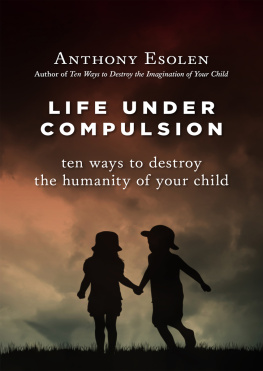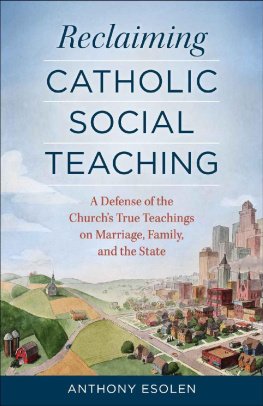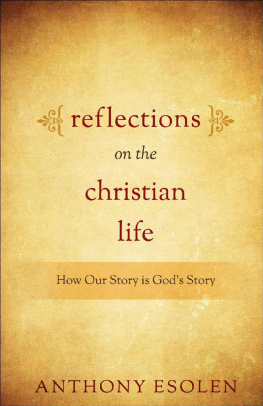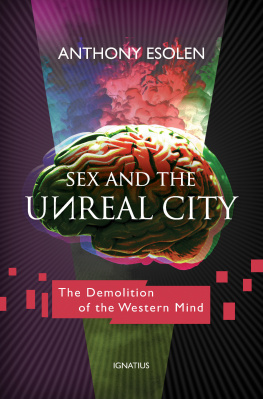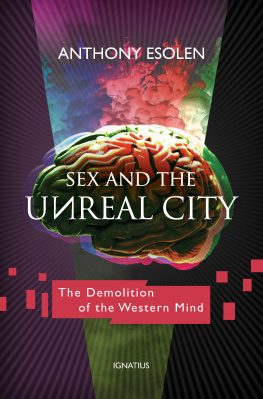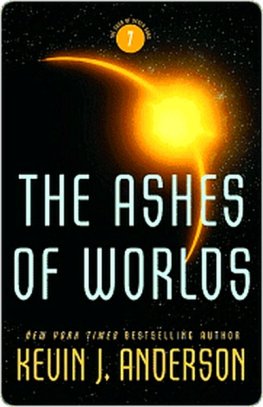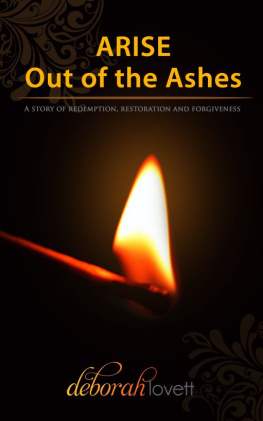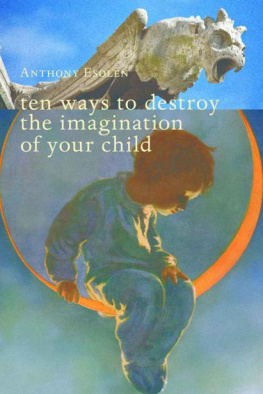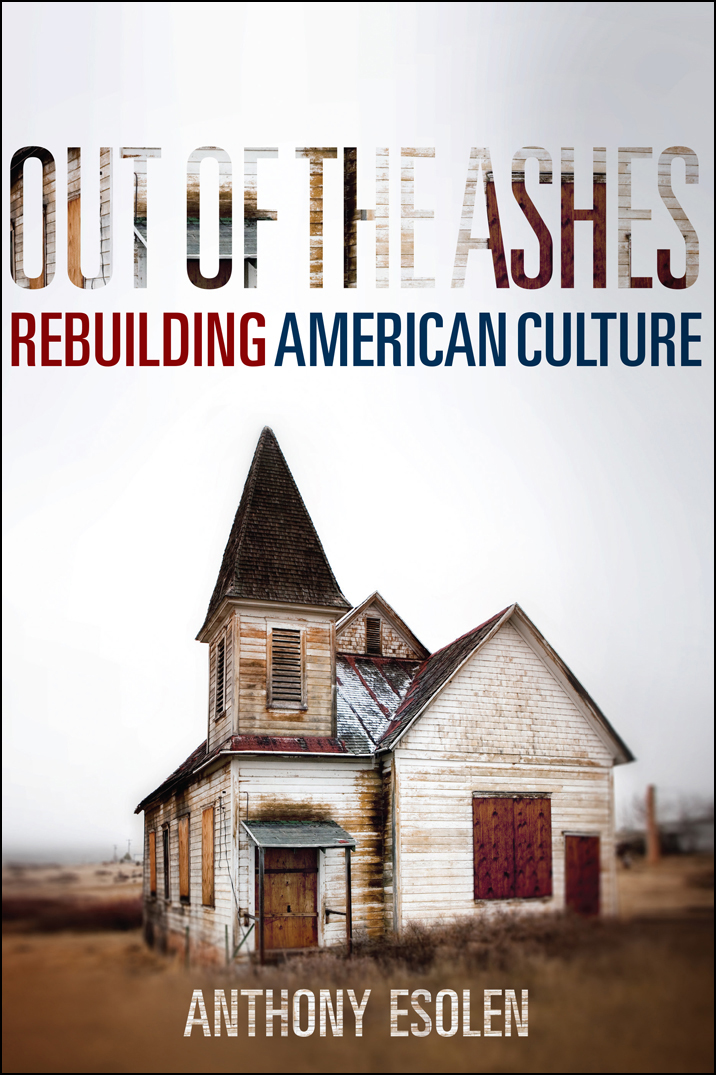

Copyright 2017 by Anthony Esolen
All rights reserved. No part of this publication may be reproduced or transmitted in any form or by any means electronic or mechanical, including photocopy, recording, or any information storage and retrieval system now known or to be invented, without permission in writing from the publisher, except by a reviewer who wishes to quote brief passages in connection with a review written for inclusion in a magazine, newspaper, website, or broadcast.
Regnery is a registered trademark of Salem Communications Holding Corporation
First e-book edition 2017: ISBN 978-1-62157-569-6
Cataloging-in-Publication data on file with the Library of Congress
Published in the United States by
Regnery Publishing
A Division of Salem Media Group
300 New Jersey Ave NW
Washington, DC 20001
www.Regnery.com
Manufactured in the United States of America
10 9 8 7 6 5 4 3 2 1
Books are available in quantity for promotional or premium use. For information on discounts and terms, please visit our website: www.Regnery.com.
Distributed to the trade by
Perseus Distribution
www.perseusdistribution.com
Also by Anthony Esolen
Ten Ways to Destroy the Imagination of Your Child
Ironies of Faith: The Laughter at the Heart of Christian Literature
The Politically Incorrect Guideto Western Civilization
Reflections on the Christian Life: How Our Story is Gods Story
Living the Days of Advent and the Christmas Season
Reclaiming Catholic Social Teaching
Defending Marriage: Twelve Arguments for Sanity
Life Under Compulsion: Ten Ways to Destroy the Humanity of Your Child
Jerusalem Delivered
The Divine Comedy (translator)
On the Nature of Things (translator)
Table of Contents
Guide
CONTENTS
I n this book I shall indulge myself in one of civilized mans most cherished privileges. I shall decry the decay of civilization.
I stand with Livy, who at the final hardening of Romes republican arteries, wrote that the study of his lands history was the study of the rise and fall of moral strength, with duty and severity giving way to ambition, avarice, and license, till his fellow Romans sank lower and lower, and finally began the downward plunge which has brought us to the present time, when we can endure neither our vices nor their cure.
My heart goes out to the exile Dante, who loved his native city of Florence, with its old aristocratic modesty and gentility, and hated what it had become, a bustling center of money-making and bloodthirsty politics. Thus he has his great-great-grandfather, Cacciaguida, in Paradise, like any old Italian man rocking on his front stoop to this day, say of his now long-forgotten fellows:
With these
and others I saw Florence in repose,
never a cause to shed a tear. With these
I saw them lead a just and glorious life,
townsmen who never saw some victor drag
their lily backward in the field, nor strife
Of party turn it red upon the flag.
Or I walk with the ancient Saxon poet of The Wanderer, whose principal experience in this world is the loss of what was once full of vigor and glory and gladness:
He who thus wisely considers this wall, the world,
and into our dark life casts his mind deep,
his heart old and keen, calls back from long ago
that wealth of slaughters, and utters these words:
Where has the horse gone? Where has the hero? Where are
the hall-joys?
Where the giver of gems? Where the gathering for feasts?
Alas, the bright goblet! Alas, the burnished mail!
Alas, the princes power! How that time has passed,
now dim under the night-helm, as if it never were!
After Rome was sacked in 410 by a frustrated glory-seeker, the German warlord Alaric, Saint Jerome wrote, Who would believe that Rome, built up by the conquest of the whole world, had collapsed, that the mother of nations had become also their tomb? I might say now, Who would believe that the whole Western world, in whose image, for better or for worse, all nations seemed to hurry to refashion themselves, would collapse, not battered from without, but sagging into lethargy and indifference and stupor from within?
Are the words too harsh?
Let me anticipate an objection that my own citations above must provoke. People are always complaining about decline and fall, someone will say, but that does not mean that things are actually as bad as they believe. It is simply one generations way of complaining about the next. You are an inveterate laudator temporis acti, one who praises the time gone by, forgetting its evils and overlooking the virtues of the present age.
There are two answers to the charge. One is that in any civilization, at any time, there will be some good things in decline, and so we will always need people who pull us up short, and say, Perhaps the amalgamation of family farms into vast tracts of agribusiness is not an entirely good thing, or, Perhaps the nearly universal exodus of women from homes and neighborhoods into offices does not bode well for the homes and neighborhoods, and that is something we should consider. In itself the radio is a wonderful thing, bringing great music and pleasant entertainment into millions of homes. It also precipitated the decay of music made by people themselves, from printed scores, from folk memories passed down over the centuries, and from sheer quirky inventiveness. In itself the television is a wonderful thingwhy, you might watch a special on emperor penguins of the Antarctic and see the big fellows waddling about the ice, diving into the cold seas to fish, or settling their large eggs between their feet to keep them warm. But you may more likely waste countless hours in half-attention and not even know the name of that cheerful little gray bird with the crest pecking at the bark of some tree or other ten feet from your window.
More people watch baseball than ever before, in high-tech stadia, prickly with electronic pictures and lights and noise that are meant to be like injections of adrenaline, over and over. Fewer people play it. Every small town in the country once boasted its own baseball team; plenty of factories did, too. All that is gone, and nothing in a towns common life has come to replace it. Rather, most of the things that were like ittown bands, playhouses, choirs, block parties, founders days, and so forthare gone, too.
So there will always be some justification for those who warn about things passing away. But the second answer to the charge of exaggeration or intransigent nostalgia is more powerful. Sometimes entire civilizations do decay and die, and the people who point that out are correct.
Think of the incomparably lively centuries when the city-states of Greece were at their height, when the lyric poet Pindar, profoundly religious, wrote odes in honor of triumphant boys and men at the games of Olympus or Delphi, celebrating not a mere individual achievement, but the very history of the lads city and family, in the context of the ever-suggestive stories of the gods; when Athens invented drama itself, and Aeschylus, in the context of the new Athenian democracy, composed the


